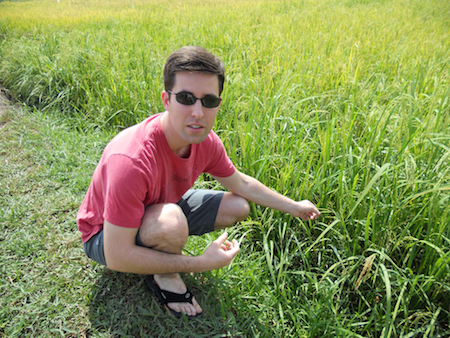South Asia
New York Times columnist David Brooks recently wrote a piece on “Smart Power Setback,” harshly criticizing the international aid system and the way it has operated in Afghanistan over the past decade. Drawing on the recent U.S.
Co-Author: Sam Jacobson
During research on media and conflict in Afghanistan, Professor Price came across the interesting phenomenon of "Radio in a Box," or RIAB. Captivated by the phrase and concept, he sought to find out more about it.
My title for this piece is intentionally ambiguous, because the relationship between the United States and Pakistan is utterly ambiguous. It could refer to Washington leaders saying, “Sorry that we violated your sovereignty to kill Osama bin Laden, but we still want to be friends.” Or it could refer to Americans saying, “We know some of your conservatives are sad to lose Osama, but we still want want to be friends.”
Over the past ten years since 9/11, event after event in and outside Afghanistan has overshadowed the need to connect with the Afghan people and to deliver on their basic expectations for peace, justice, and prosperity. Even though NATO member-states increasingly appreciate the importance of public diplomacy at home and abroad, they have largely faltered to engage and listen to the Afghan people on how to secure Afghanistan.

In the subcontinent, there is really only one religion that unites India, Pakistan and Bangladesh: cricket.
What is Gov 2.0? Gov 2.0 is all about a new culture of open governance, greater citizen involvement through the judicious use of web 2.0. Gov 2.0 is about interactive democracy against representative democracy, it is about open administration that involves citizens participation against closed administration and it is about spirit of voluntarily sharing information against closely guarding it.
 APDS Blogger: Mark Preston
APDS Blogger: Mark Preston
India is an ancient civilization with five thousand years of recorded history. Over these long years Indians have perfected many cultural attributes that may be appealing to the rest of the world - what Joseph Nye likes to call 'soft power’. Some good examples of Indian soft power are Yoga, Bollywood, Ayurveda and the great Indian cuisine (including curry and chicken tikka).







